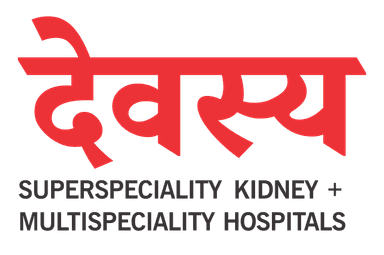Gallbladder Stone Treatments & Surgery
How Devasya Hospital helps to cure Gallbladder Stones?
To ensure your well-being and a quicker recovery from gallbladder stones - Devasya Hospital provides the best treatment for gallbladder stones. Our skilled team uses the least invasive surgical process known as laparoscopic cholecystectomy. It is a highly effective method for gallbladder stone treatment.
Laparoscopic Cholecystectomy is a procedure that makes small incisions. It allows faster healing and less scarring. Our trained surgeons can remove gallstones from the gallbladder precisely and effectively thanks to this innovative method. We take pride in offering the best gallbladder stone treatment using the latest medical technology and state-of-the-art facilities. Throughout your treatment process, you will receive individual attention and care thanks to our patient-centric approach.
Rest assured that the team of highly qualified doctors at Devasya Hospital is committed to providing the finest levels of treatment, guiding you toward a gallstone-free and healthier life. Trust in our expertise to deal with your worries about gallbladder stones and get excellent healthcare at Devasya Hospital.
FAQs
Gallbladder stones are formed by an imbalance in the components of bile, a substance produced by the liver to help digestion. The following are the vital causes of gallstone formation:
- High bilirubin levels in the bile can lead to the formation of colored gallstones.
- Gallstones built of cholesterol can form when the bile contains too much cholesterol.
- If the bile is highly concentrated, it can trigger the formation of crystals of bilirubin or cholesterol, which may result in stone formation.
- Bile may get stagnant when the gallbladder does not drain well or frequently, which raises the risk of stone formation.
- Obesity, a sedentary lifestyle, certain medical disorders, and fast weight loss are all risk factors for gallstone formation.
For the diagnosis of Gallbladder stones, several tests may be performed, like ultrasound, abdominal CT scan, and blood tests to assess liver function and bilirubin levels. In some cases, a HIDA scan or endoscopic procedures may be advised to confirm the presence and location of the stones. These tests help healthcare professionals determine the appropriate treatment plan for the patient.
Until one of your gallstones produces a blockage, you won't be aware if you have any. The most typical symptom is stomach ache in the right upper half of your abdomen. You will have acute discomfort if a gallstone causes persistent obstruction or infection. This could include:
- Jaundice
- Indigestion
- Bloating
- Constant pain
- Fever and chills
- Dark-colored pee
- Sunken eyes
- Accelerated heart rate
Early symptoms of gallbladder stones include occasional stomach pain, especially after meals, as well as mild digestive discomfort like bloating and indigestion. Some other signs of gallbladder stones are vomiting, nausea, and backache between the shoulder blades.
Complications of Gallbladder Stones may include blockage of the bile duct (choledocholithiasis), pancreatitis, soreness of the gallbladder (cholecystitis), and in rare cases, infection or perforation of the gallbladder. Timely medical care is essential to prevent or manage these complications effectively.
- Every day, make sure you have lots of water to stay well-hydrated.
- Keeping your weight in check requires a balanced diet and regular exercise.
- Minimize your intake of foods that are high in fat and cholesterol.
- Avoid crash diets for weight loss
- Limit your alcohol consumption.
- Discuss with your doctor any medications that may raise your risk of gallstones.
- Visit your doctor frequently to check on your general health.



